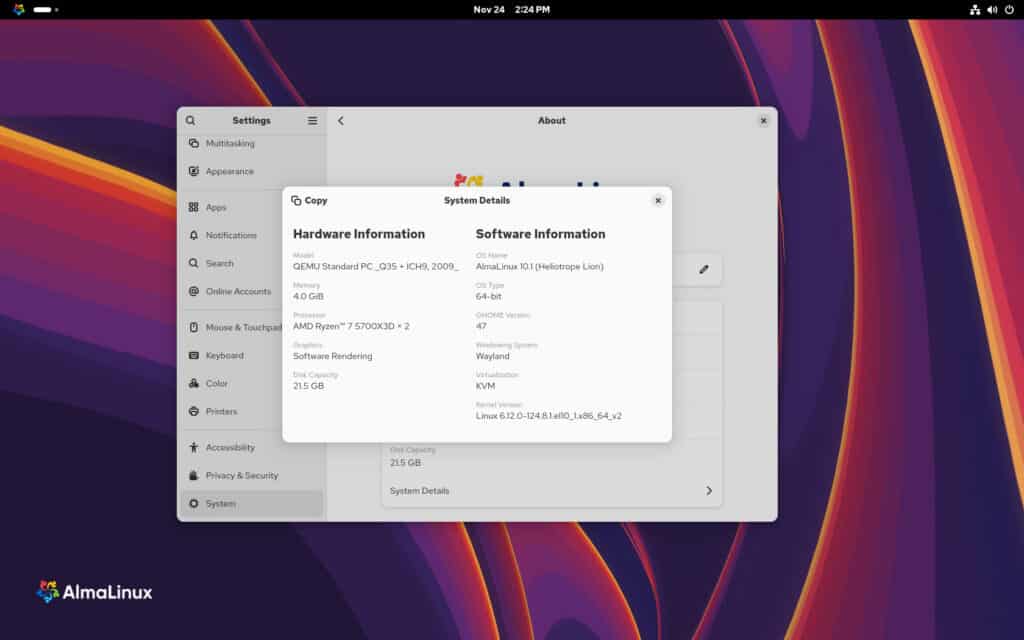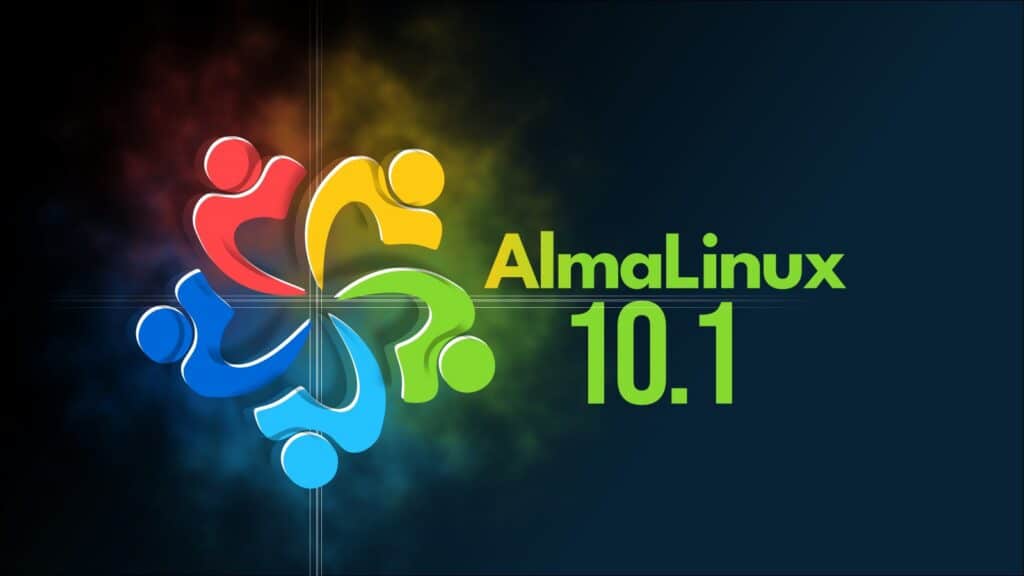Six months after the major 10 release, powered by kernel 6.12 LTS, AlmaLinux announces the global availability of the first update in the series, AlmaLinux 10.1 (Heliotrope Lion).
As we informed you earlier, one of the key additions in this release is full Btrfs support. AlmaLinux 10.1 now allows installations directly onto Btrfs from the beginning, with both kernel and userspace components enabled. The initial focus is on installer and storage-stack integration, with broader Btrfs tooling support planned for upcoming updates.
Hardware compatibility expands significantly with AlmaLinux reintroduces a long list of upstream-dropped PCI IDs for storage controllers, network adapters, and Fibre Channel hardware, restoring support for older but still-used systems. This includes hardware from Adaptec, Dell PERC, HP Smart Array, IBM ServeRAID, QLogic, Emulex, Mellanox, Broadcom MegaRAID, LSI MPT SAS, and more.
Additionally, the release introduces an x86_64_v2 build of AlmaLinux 10.1, targeting machines that fall below the newer x86_64_v3 baseline used by Red Hat.

Moreover, several features return in this version. SPICE support is re-enabled for both server and client use cases, and frame pointers are enabled by default again, improving the accuracy of tracing and performance-profiling tools. KVM support for IBM POWER remains available, matching expectations for users migrating from AlmaLinux 8. In addition, the CRB repository is now enabled automatically on new installations.
AlmaLinux 10.1 also brings extensive updates to compilers, toolchains, and development frameworks. GCC is updated to 14.3.1, with GCC Toolset 15 adding GCC 15.1 and modernized Binutils. LLVM Toolset moves to 20.1.8, while Rust advances to 1.88.0 and Go to 1.24.
The glibc stack has also been updated to version 2.39. Performance and debugging tools such as GDB, Valgrind, SystemTap, Dyninst, elfutils, and libabigail are updated, along with monitoring tools such as PCP 6.3.7 and Grafana 10.2.6.
Security capabilities widen through the introduction of system-wide post-quantum cryptography algorithms enabled by default. OpenSSL 3.5 adds support for ML-KEM, ML-DSA, and SLH-DSA, and the release introduces RPMv6 signatures, allowing multiple signatures per package and enabling PQC signing workflows through Sequoia PGP.
Networking and virtualization stacks also see upgrades. NetworkManager moves to 1.54, iproute to 6.14, and ethtool to 6.15. The container and virtualization stack includes Podman 5.6, Buildah 1.41.4, Libvirt 11.5, and QEMU-KVM 10.0.
Lastly, applications and infrastructure packages receive updates as well, including Python 3.12.11, Samba 4.22.4, Mesa 25.0.7, Apache HTTP Server 2.4.63, and Node.js 24.
For fresh installs, users can download AlmaLinux 10.1’s ISOs from the distro’s mirrors for the following architectures: Intel/AMD (x86_64, x86_64_v2), ARM64 (aarch64), IBM PowerPC (ppc64le), and IBM Z (s390x).
Of course, if you are currently running AlmaLinux 10, everything you need to upgrade to the latest 10.1 release is to execute the following DNF command:
sudo dnf upgrade -yCode language: Bash (bash)For more information about all changes, refer to the announcement or visit the release notes.
